What is unfolding in Gaza is not hunger or famine, but deliberate starvation
By Press TV Website Staff
In a report submitted to the UN Security Council on Saturday, UN Secretary-General Antonio Guterres warned that “widespread famine looms” in the besieged Gaza Strip amid the Israeli regime’s relentless bombings and the crippling siege.
The report came in response to a UN Security Council resolution on December 22 that called for “immediate, safe and unhindered delivery of humanitarian assistance” to Gaza amid the catastrophic food crisis in the territory, which has put the lives of millions of people on the brink.
The report warned of a public health catastrophe” in Gaza and says “infectious diseases are spreading fast in overcrowded shelters” with “appalling” sanitary conditions and “sewage flooding”.
Earlier, in a statement on Friday, UN relief chief Martin Griffiths warned that famine is “around the corner” as Gazans continue to grapple with “highest levels of food insecurity ever recorded.”
“Gaza has simply become uninhabitable. Its people are witnessing daily threats to their very existence – while the world watches on,” Griffiths was quoted as saying by the United Nations Office for the Coordination of Humanitarian Affairs (OCHA). “Hope has never been more elusive.”
The Israeli regime has killed more than 22,000 people in the besieged territory since October 7, mostly women and children. It has also intensified its siege on the coastal strip.
More than 80 percent of the population is currently grappling with hunger and homelessness in Gaza, according to aid and rights groups, with Israel repeatedly snubbing calls for a “humanitarian truce.”
The UN agency for Palestinian refugees also warned last week about insufficient aid to Gaza, which it said has left 40 percent of the territory’s population “at risk of famine.”
“Every day is a struggle for survival, finding food and finding water,” Thomas White, director of UNRWA affairs in Gaza was quoted as saying on X, formerly known as Twitter.
World Health Organisation (WHO) chief Tedros Adhanom Ghebreyesus also called for “urgent steps to alleviate the grave peril” facing Gazans, including “terrible injuries, acute hunger severe risk of disease”.
More misery
— Press TV (@PressTV) December 20, 2023
The World Food Program estimates all Gaza’s 2.3 million residents are now food insecure. https://t.co/szkRXYyo7O https://t.co/szkRXYyo7O
The grave food insecurity is what is pushing people toward the brink of starvation, which was attested by the Integrated Food Security Phase Classification (IPC) report last month.
“It doesn’t get any worse,’’ the World Food Programme (WFP) chief economist, Arif Husain, was quoted as saying in the report. “I have never seen something at the scale that is happening in Gaza and at this speed – how quickly it has happened in just a matter of two months.”
The report prepared by 23 UN and nongovernmental agencies made a stunning revelation – the entire population in Gaza is facing a food crisis with 576,600 people at catastrophic levels.
The report added that Every person in blockaded territory is expected to face high levels of food insecurity in the coming weeks, sounding a proverbial alarm bell.
“These are not just numbers – there are individual children, women and men behind these alarming statistics,” said Husain. “The complexity, magnitude and speed of the crisis are unprecedented.”
However, a question many are asking is: should this be termed a “famine” or “deliberate starvation’?
After the events of October 7, when the Hamas-led Palestinian resistance movement launched an unprecedented military operation against the Zionist entity, the Israeli regime went berserk.
On October 9, Israeli military affairs minister Yoav Gallant ordered “a complete siege on the Gaza Strip”, warning that “there will be electricity, no food, no fuel – everything is closed.”
The then-Israeli energy minister Israel Katz, in a post on X on October 16, said he “strongly opposes opening if the blockade and supply of humanitarian goods into Gaza on humanitarian grounds.”
A day later, on October 17, Israeli war minister Itamar Ben-Gvir echoed the same words, asserting that no aid should enter the blockaded Palestinian territory.
According to the Rome Statue of the International Criminal Court that governs armed conflicts clearly states that “intentionally using starvation of civilians as a method of warfare by depriving them of objects indispensable to their survival, including willfully impeding relief supplies” is a violation.
Starvation was condemned by the UN Security Council in 2018 with resolution 2417.
Starvation is defined by UN experts as an issue that is not just about access to food for survival but also includes the “intentional deprivation not only of food or water but also of other goods indispensable to the survival of a civilian population”.
What is unfolding in the Gaza Strip, according to observers, is not hunger or famine, but deliberate starvation – using starvation as a weapon of war against the people of Palestine.
Tlaleng Mofokeng, the UN Special Rapporteur on the Right to Health, in a post on X on Saturday, responding to the UN chief’s latest report, said Gaza is dealing with “deliberate starvation, not famine.”
“We need an immediate ceasefire,” said Mofokeng, who serves as an independent UN human rights expert, reacting to the report that said “widespread famine looms” in Gaza.
Kenya-based Oxfam International in October warned that starvation “is being used as a weapon of war against civilians in Gaza in the act of collective punishment”.
In recent weeks, as the situation deteriorates and the Israeli regime ups its bombardment and siege, the levels of starvation – deliberate starvation – have also assumed alarming proportions.
VIDEO | Sudanese refugees build new life in Ethiopia
The Year That Was: Pro-Palestine campaigns that disrupted US-Israeli war machine in 2025
‘You may be surprised’: Iran’s top legislator warns enemies about scope of future defensive measures
VIDEO | Press TV's news headlines
VIDEO | Tunisians reject Israel’s recognition of Somaliland
VIDEO | Tunisians react emotionally to Abu Obeida’s martyrdom
US bears full responsibility for consequences of any fresh aggression against Iran: FM
VIDEO | Sudan’s healthcare system nears collapse amid conflict


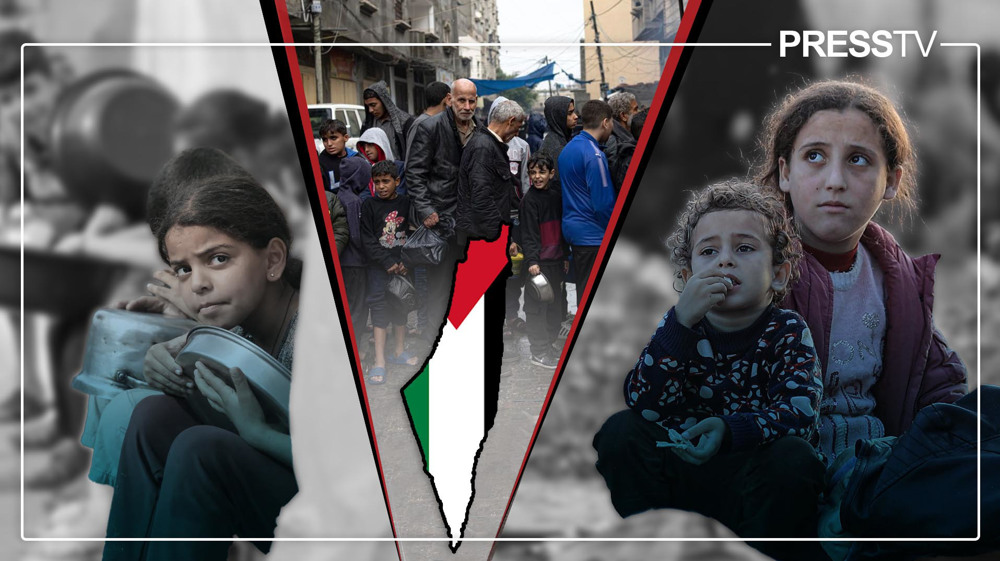
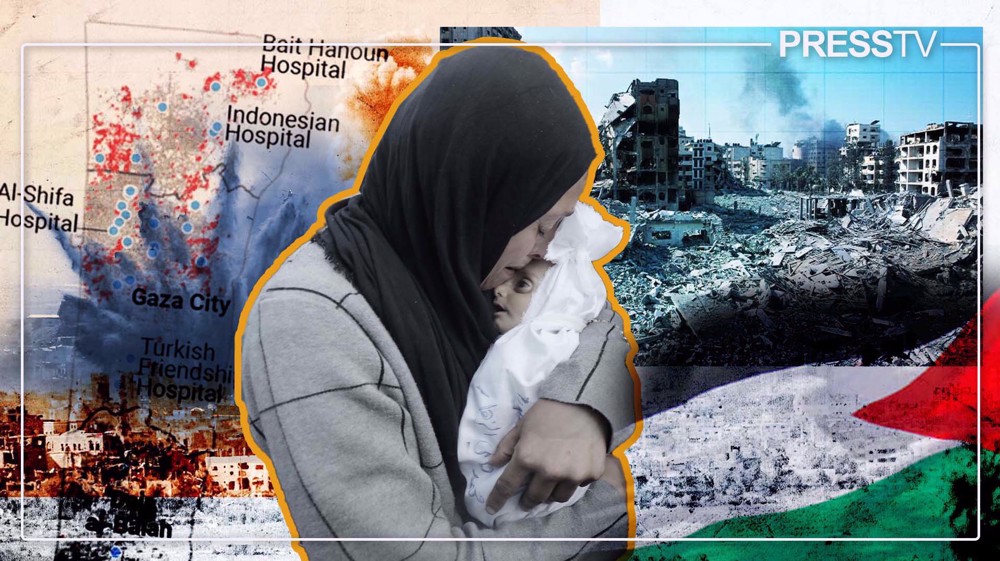
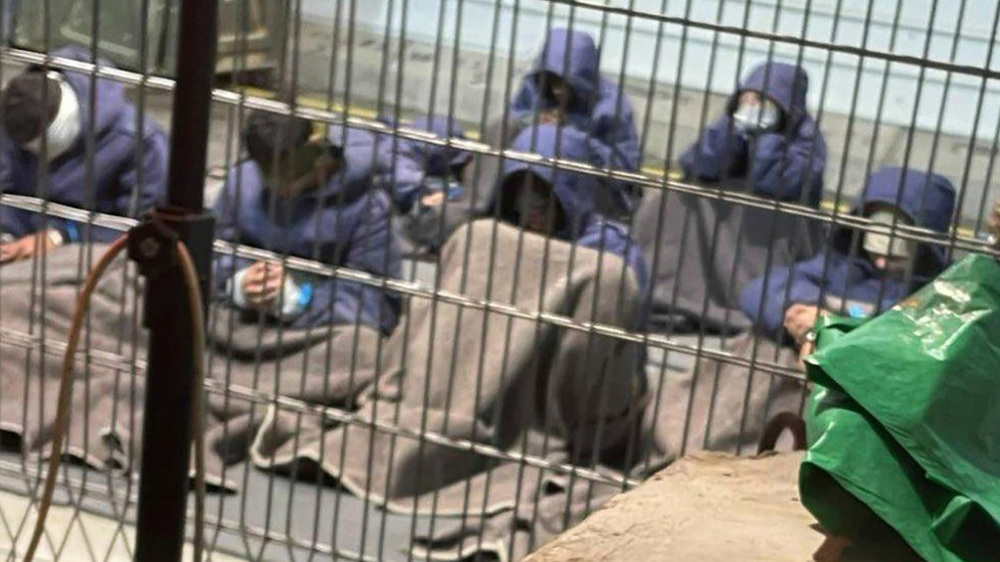

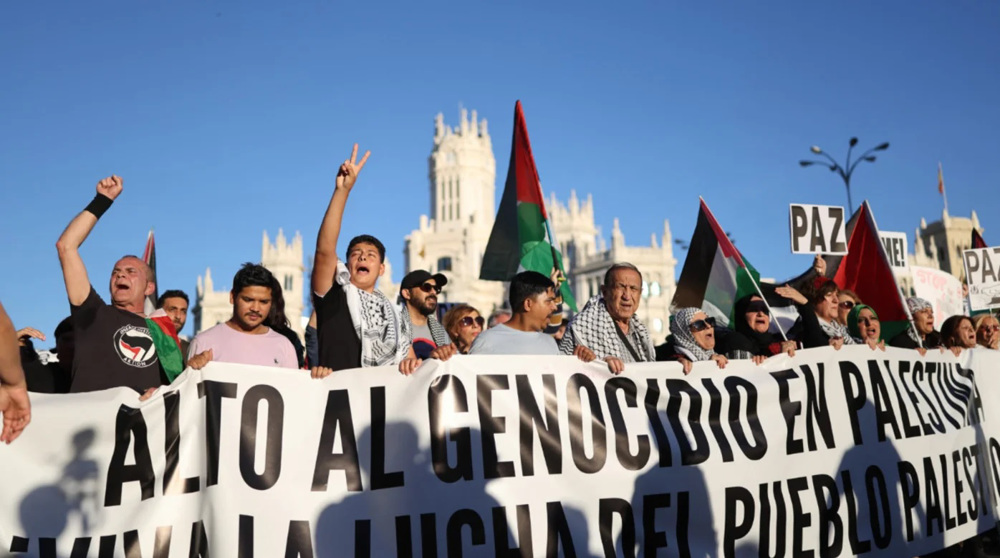



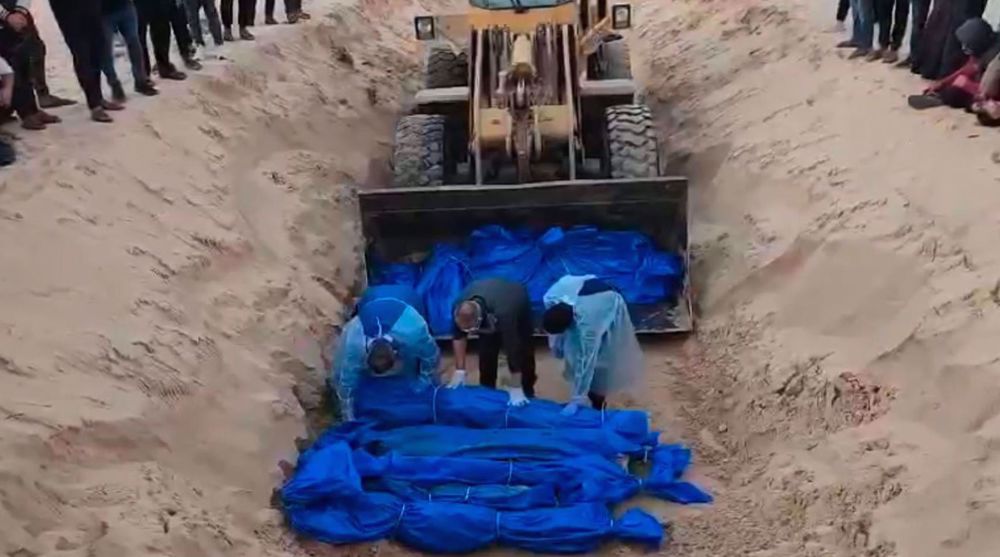
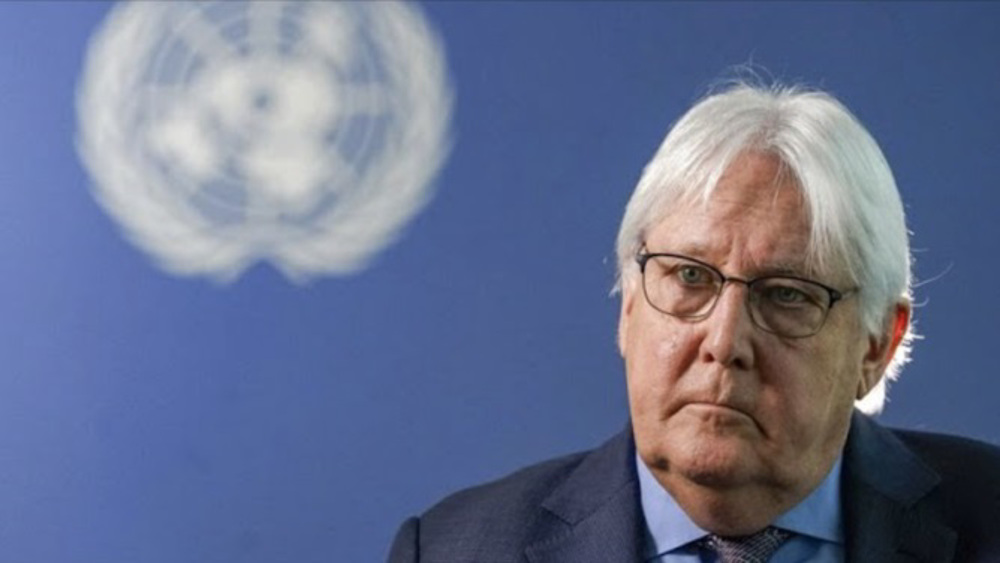
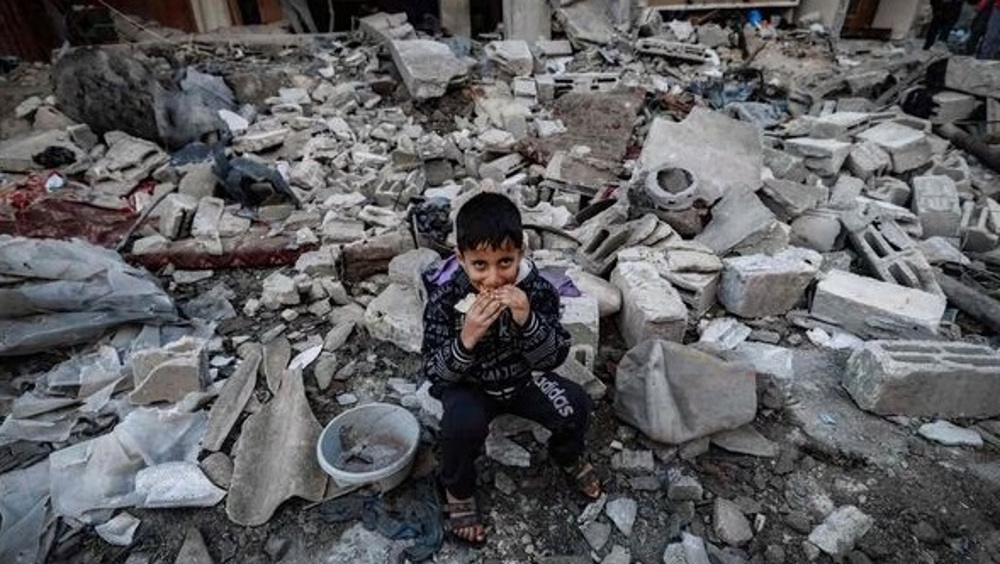
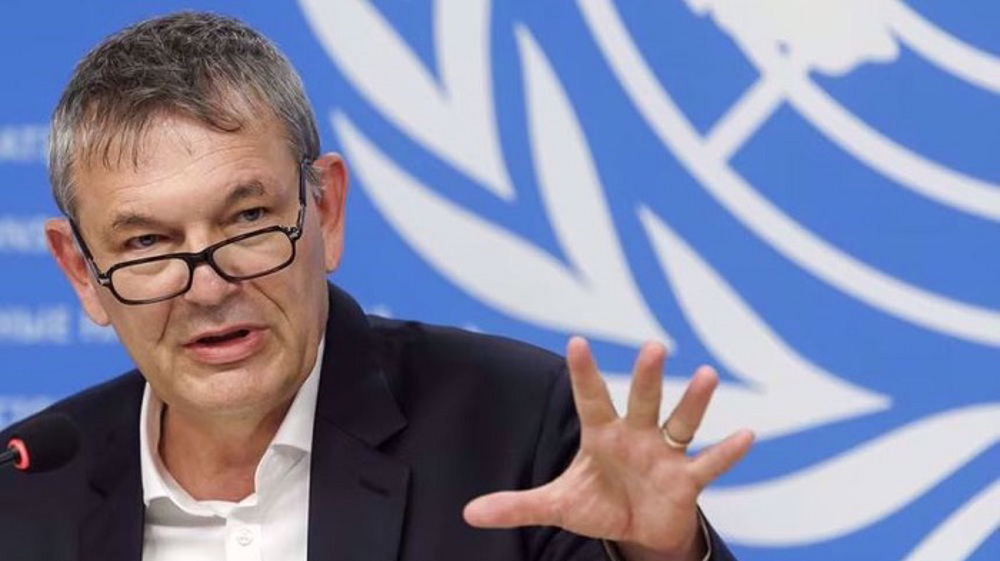
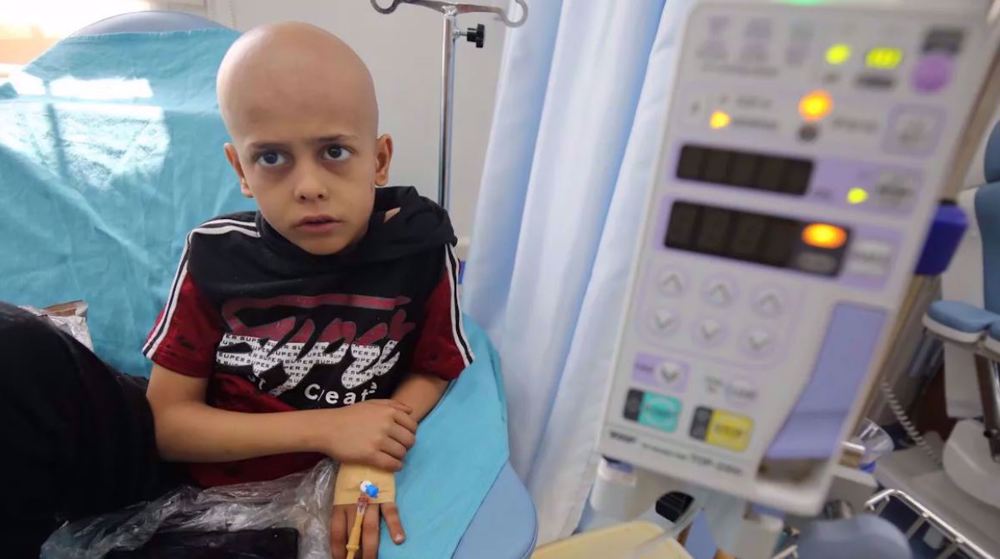

 This makes it easy to access the Press TV website
This makes it easy to access the Press TV website